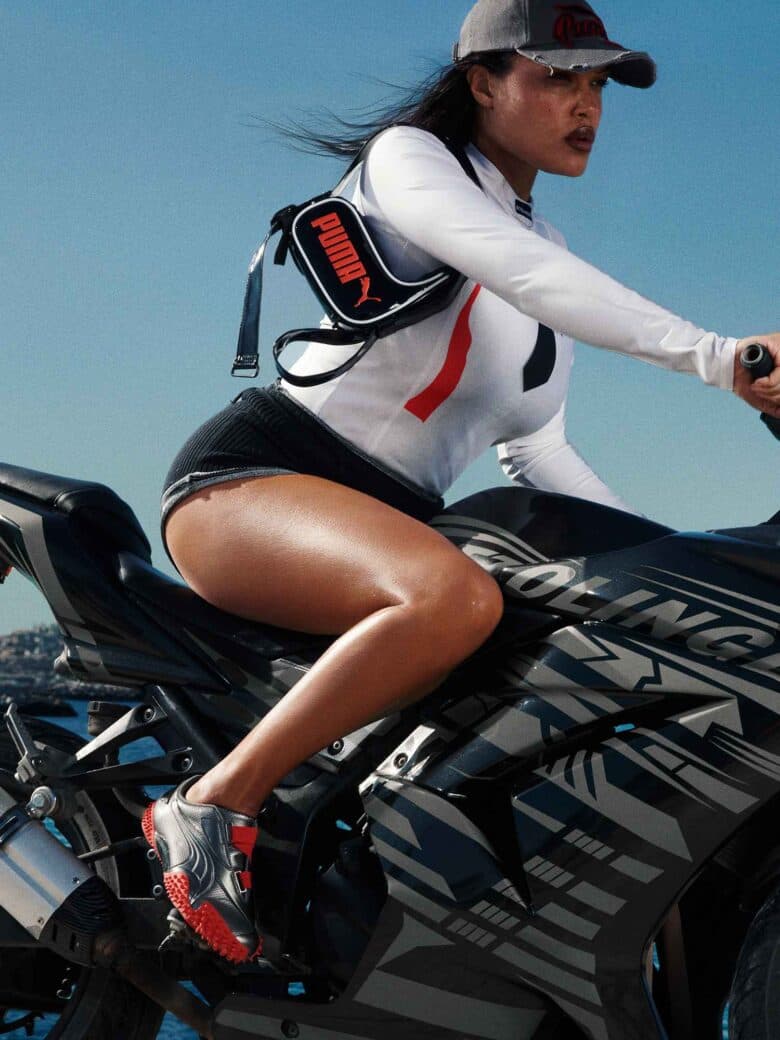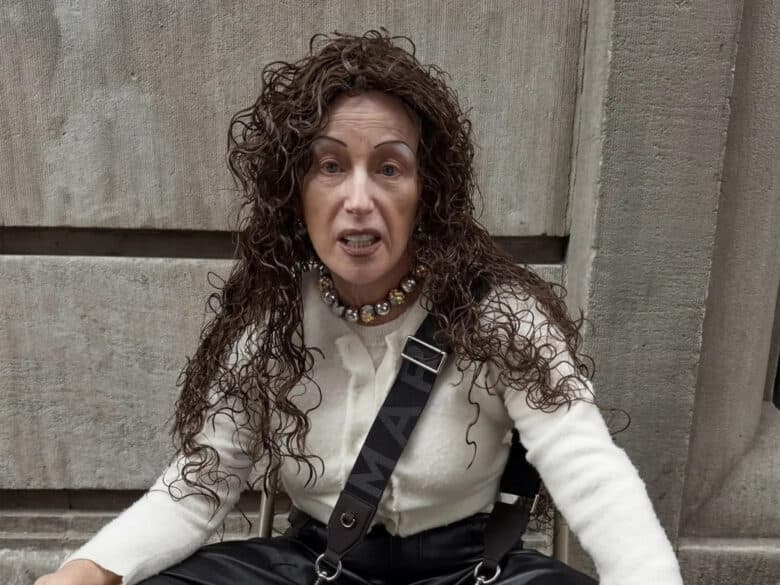Vick Hope on leading the radio renaissance and the North-South divide: “I want tangible, sustained change”
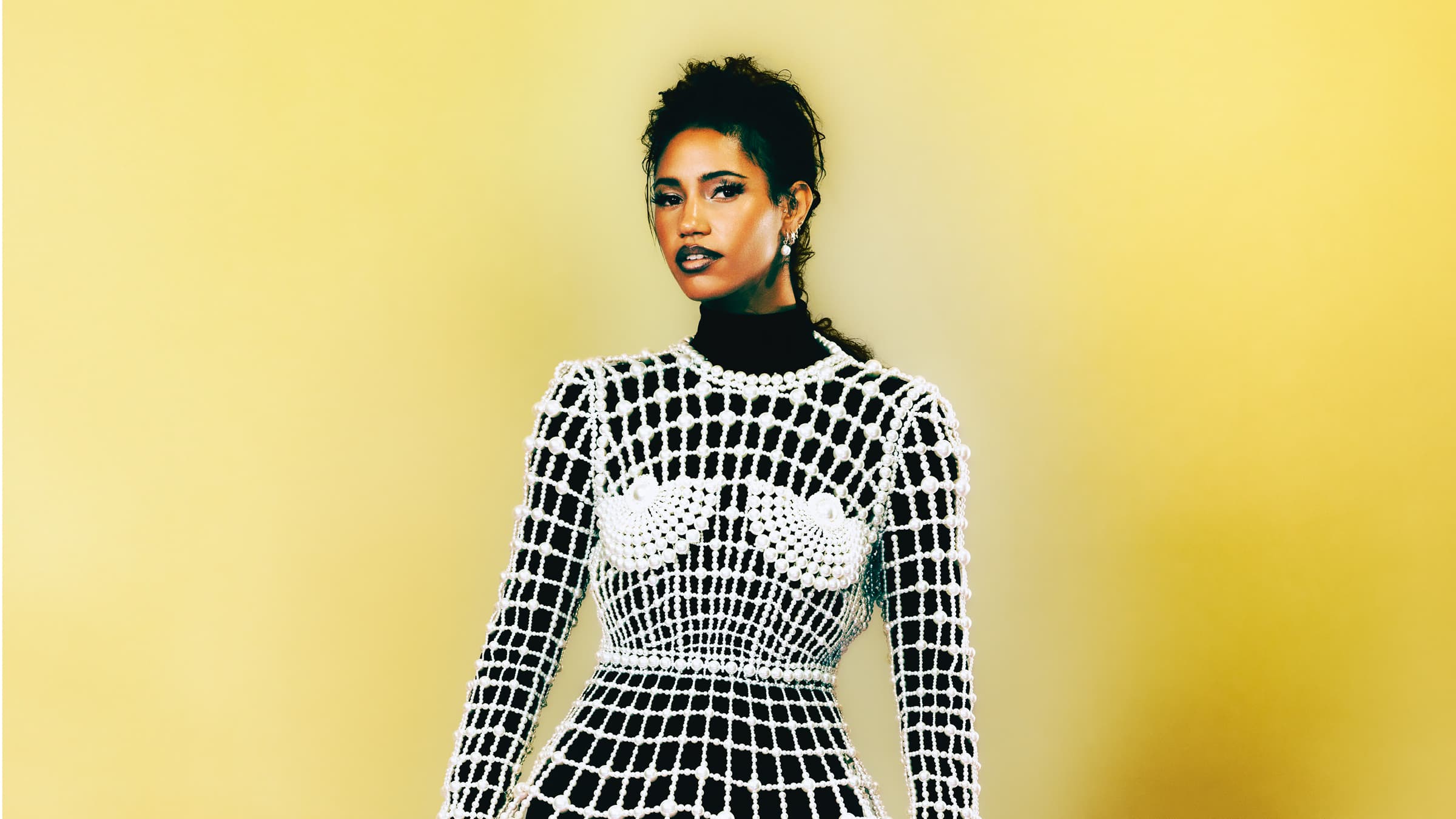
“I remember when I was little, listening to The Surgery in my bedroom and thinking, ‘Oh my God, I felt that too! It’s not just me, I thought it was just me!’” Vick Hope says excitedly over Zoom from her home in North London, a rainy English summer’s day beyond the windows and walls. The Surgery was a benchmark for British radio, a programme with an illustrious list of hosts, including Sara Cox, Annie Mac and Kelly Osbourne, all discussing shared and unique problems during adolescence and offering advice, both personal and professional. It was, in many ways, cherished, not just by a young aspiring radio presenter like Hope.
That show may have been axed back in 2017, along with Hope’s dreams of hosting it, but the 33-year-old, originally from Newcastle, now sits as one of the faces, or rather voices, of a show of a similar format that replaced it: Life Hacks, co-hosted with Katie Thistleton. “It sparks so much conversation,” she says. “And the fact that everyone wants to get involved and help each other out,
it’s a really heartening thing to see in the listenership. I feel like that interactivity speaks for itself. People clearly want to chat.”
On the day of her shoot with HUNGER, Hope rocks up to the studio in Kentish Town, just a stone’s throw from her gaff, before 7am has even struck (those be the perilous times of life as a radio presenter), wearing a bright Hawaiian shirt and raring to go. She’s clasping the biggest coffee she can find and exudes the energy you would expect from someone so full of life, and someone whose job it is to be known for it. It’s all in the cheerful, energetic voice and clever takes on what’s happening in the world. Then again, the art of words, language and speech are well and truly in her blood.
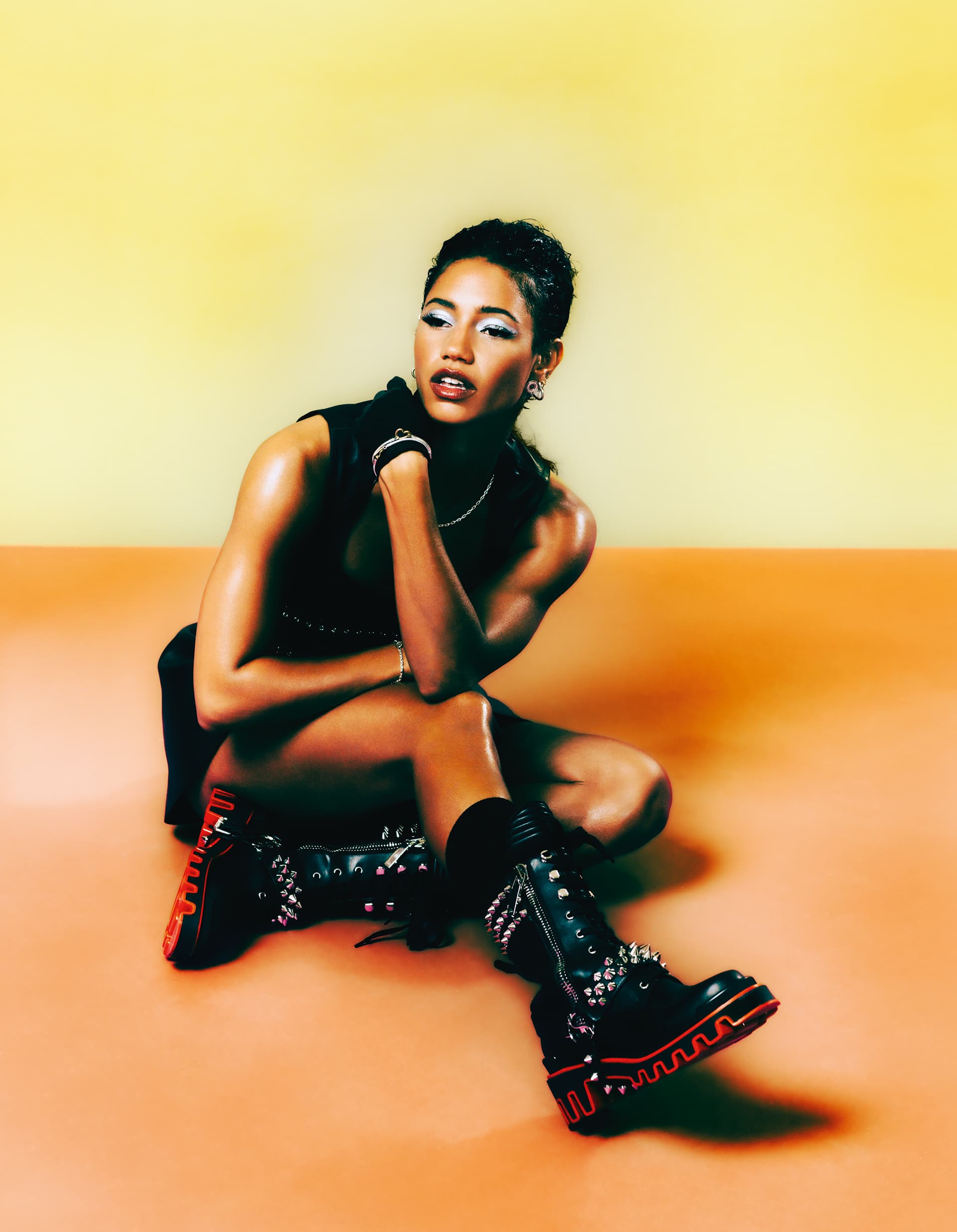
“Anything can happen and ideas can go from conception to execution so quickly,” Hope says about the medium of radio. “When we come in at, say, 2.30pm, an hour before our show, we could have seen something mad happening in the street, bring it to our pre-show meeting and it’s on the radio within an hour.” She goes on to describe the show as “unapologetically live”.
Inspired by Kate Adie’s book The Kindness of Strangers, which laid bare the fast-paced and witty world of broadcasting, Hope had originally set her sights on becoming a war correspondent, imagining she would be wearing flak jackets rather than floral shirts. She studied modern languages at Emmanuel College, Cambridge, where her soon-to-be booked-and-busy career started, when she travelled to Buenos Aires at the age of 19 and became the youngest journalist at The Argentina Independent. From there, Hope was scouted by MTV.
“It was my first taste of television,” she recalls. “I hadn’t really thought about it at all. But I knew I loved storytelling, communicating and connecting with audiences. And this was another way of doing that.”
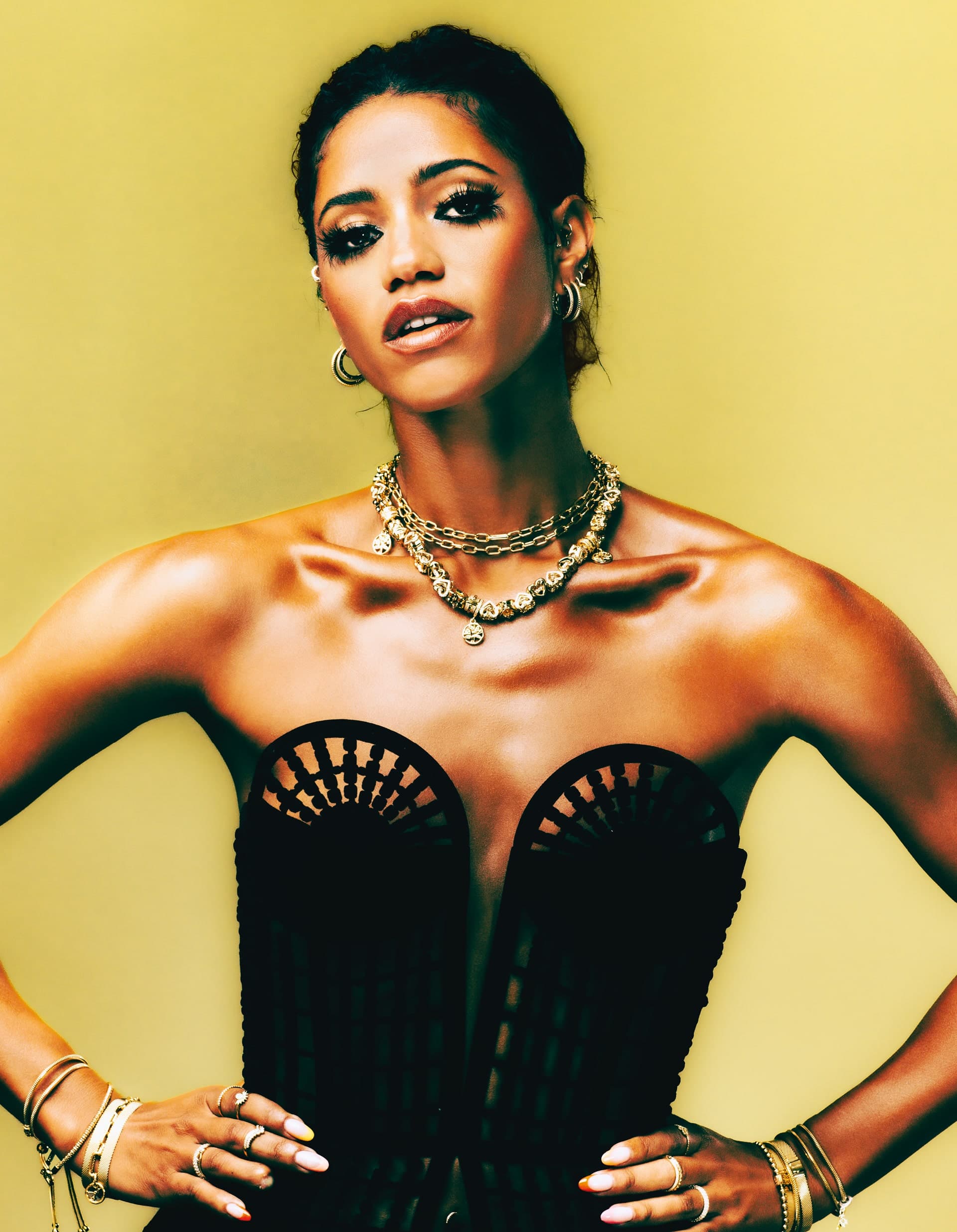
MTV was the glorious springboard into British broadcasting, and Hope’s career in television blossomed. There was backstage reporting on shows like The Voice UK, as well as featuring on ITV’s The Hot Desk and FYI Daily. And from 2017, it was the Capital Breakfast show alongside
Roman Kemp and Sonny Jay, which is when she got her foot in radio’s door. “I loved doing music broadcasting. And I think that a really good muscle to flex is that constant live broadcast that you have with radio, and so it was quite a natural move to want to give radio a go,” Hope says.
“I think It’s all part of the same passion,” she adds, referring to her move to the BBC and hosting shows like Life Hacks and Going Home with Vick and Jordan with Jordan North, a step away from the solely music-led programmes. “I think that a lot of the skills are interchangeable between writing, journalism, TV and radio. But I feel like radio as a medium is something that I came
to love rather than sought out.”
Hope has already proven her skills across media including writing, TV and radio. There is, of course, her deeply rooted passion for language too, thanks to that Cambridge degree. In 2021, she joined the judging panel for the Women’s Prize for Fiction, the year that Susanna Clarke’s Piranesi took the crown. And Hope is also an author herself, having penned two children’s books with her
former colleague Kemp, in which she says she “wanted to show and represent so many different types of kids”.
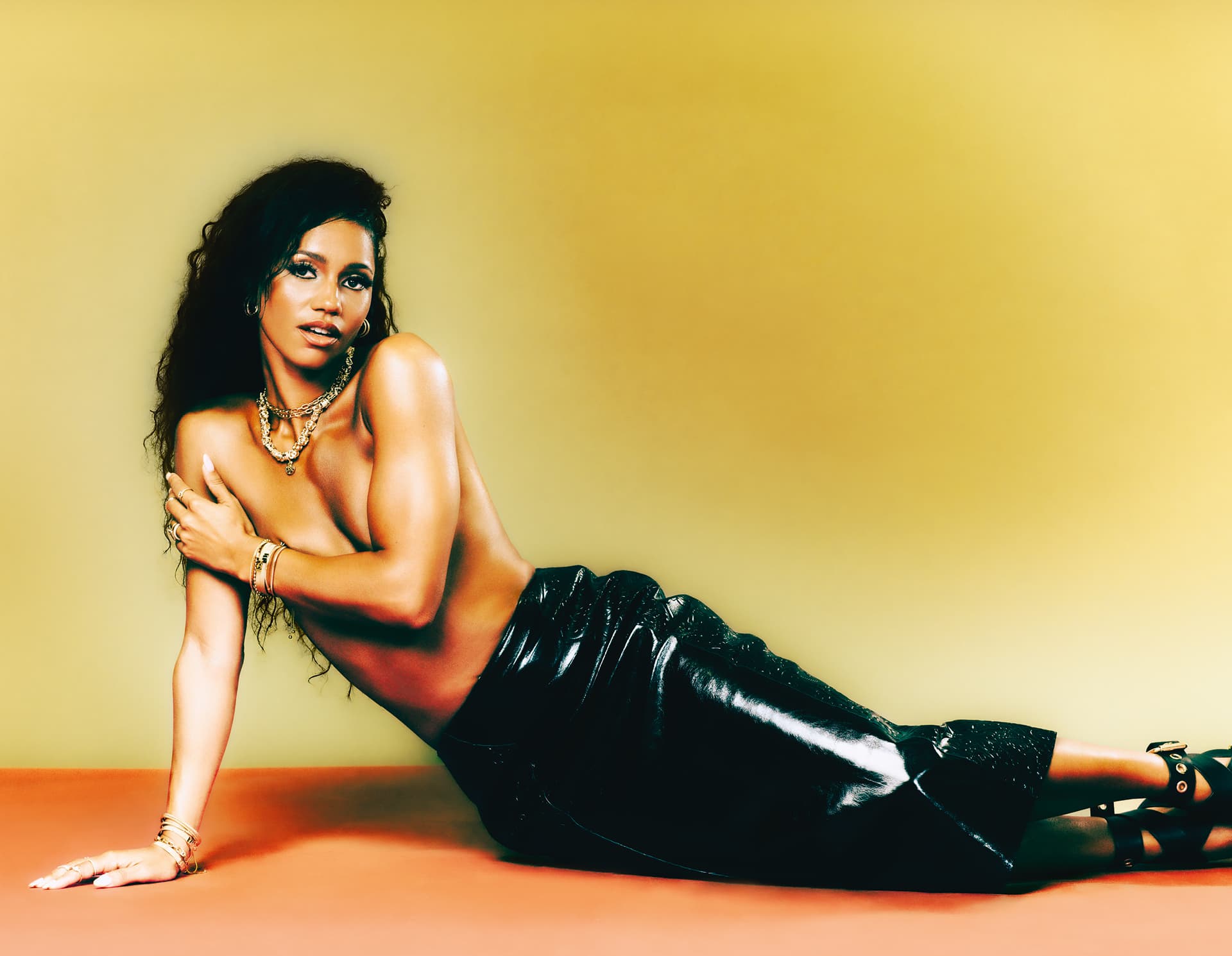
Hope also hosts the Bookshelfie: Women’s Prize for Fiction podcast, which features conversations with the likes of Baroness Lawrence, Mary Portas and Gina Miller. “I come away from every single episode feeling like I’ve learnt something that’s genuinely going to change my life, feeling that I’ve heard some words that are going to stay with me, that I’m going to wear around my neck like
pearls,” she says, adding that she’s currently reading this years Women’s Prize winner, Barbara Kingsolver’s Demon Copperhead. “I just care so much about the main character, Damon Fields. I think about him when I’m not reading it. And it’s a great feeling when you just can’t wait to get
back into the book that you’re reading. You’re waiting for bedtime so you can get through a few more pages.”
Hope ruminates on how it has been through her various and impressive array of endeavours that has helped her learn more about the person she is and to be open about that. “It’s the fact that I’m academic, that I have this podcast about books that I love. It’s the fact that I’m sensitive that I’m doing this radio show about issues affecting young people, because then you can deal with sensitive subject matter in a warm way. So all of these parts of your character that you might have thought were weaknesses turn out to be strengths,” she says. It’s also one of the reasons she has chosen to partner with the jewellery brand Pandora. As Hope says, “Pandora is particularly
accessible. It’s affordable, it’s inclusive and they celebrate that individuality.”
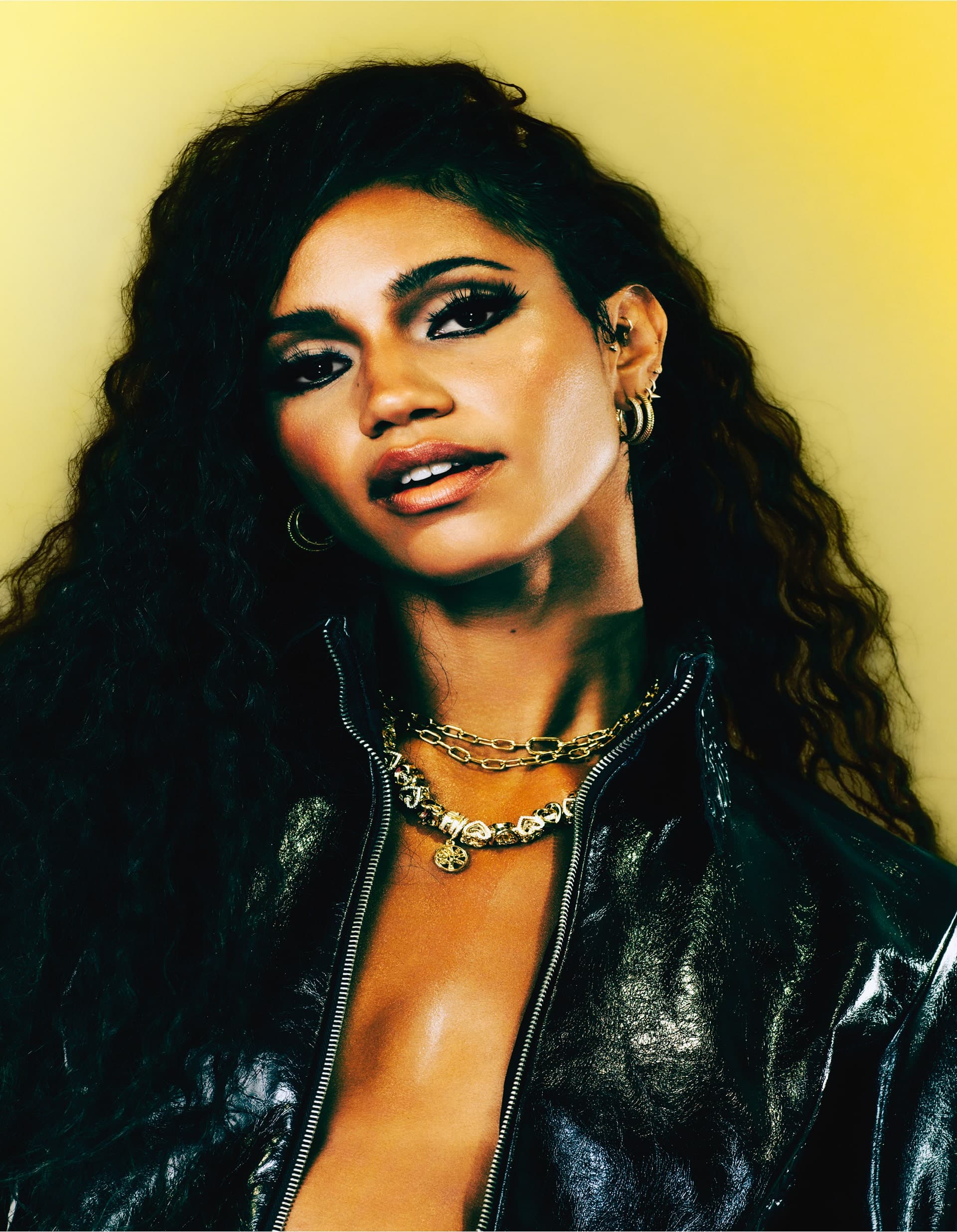
As the call comes to a close, the question around the power that radio holds now still lingers. The world has changed, the way we take in information and the ways in which we consume media have evolved more than any of us could have imagined. So where does radio sit within all of this change? It was during the Covid-19 pandemic that radio really showed its true colours to Hope, and how it could provide for people in a way other media could not: “It was companionship and solace and community when people needed it the most, when people were isolated.” But of course it goes further than that. The impact of radio during the pandemic was a glimpse into its potential in the modern world, but what resonates is how radio is changing for the better.
“As someone coming from Newcastle and spending the first few years of my career with no money because you’ve got to pay rent in this extortionate city, in London, there has been this massive chasm between the North and the South. But that is, again, something that’s changing,” she says. But while strides have been made to further diversity and inclusion in media industries, there is still more to be done. “I want tangible, sustained change,” she says. “I feel like we can see it. I just hope we keep it up.”
